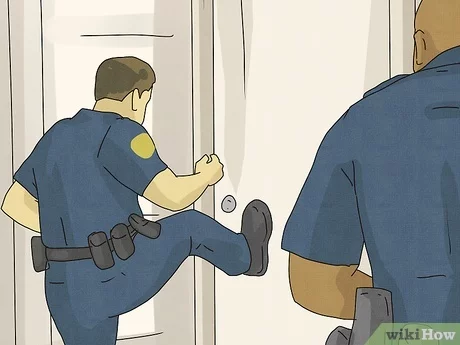Understanding Welfare Checks for Vulnerable Individuals

Introduction
In today’s society, the term “welfare check” is commonly used to describe a well-being or safety visit conducted by authorities to ensure the welfare of individuals, particularly those who may be vulnerable, isolated, or facing potential risks. These checks are part of social welfare systems and are designed to provide assistance and support to those in need. In this article, we will delve into the concept of welfare checks, their importance, how they are conducted, and the impact they have on society.
What are Welfare Checks?
Welfare checks, also known as wellness checks or safety visits, involve the proactive intervention of authorities, such as law enforcement officers, social workers, or community service organizations, to ensure the well-being and safety of specific individuals. The individuals targeted for these checks are typically those who may be at risk of harm, facing health issues, experiencing social isolation, or lacking necessary resources to meet their basic needs.
The Importance of Welfare Checks
Welfare checks play a crucial role in safeguarding vulnerable members of our society. They serve as a safety net, reaching out to those who might otherwise go unnoticed or unsupported. Often, these individuals may be elderly, disabled, or suffering from mental health conditions, making them more susceptible to neglect or abuse. By conducting welfare checks, communities can identify potential risks and intervene early, preventing potentially tragic outcomes.
Addressing Social Isolation
Social isolation is a prevalent issue, especially among the elderly and individuals with limited mobility or access to resources. Welfare checks provide a lifeline for these individuals by offering regular visits and ensuring their basic needs are met. These visits not only address immediate concerns such as food, shelter, and medical attention but also combat loneliness and improve mental well-being.
Protecting Children and Vulnerable Adults
Another vital aspect of welfare checks is their role in protecting children and vulnerable adults. Authorities often conduct welfare checks in response to reports of suspected child abuse, neglect, or maltreatment. Similarly, vulnerable adults, such as those with disabilities or cognitive impairments, are at risk of exploitation and mistreatment. By conducting regular visits and assessments, authorities can identify signs of abuse or neglect and take appropriate actions to ensure their safety.
Emergency Response
Welfare checks are instrumental during emergencies and natural disasters. In times of crisis, authorities may not have immediate access to complete information about the well-being of residents in affected areas. Conducting welfare checks enables them to identify those who may need urgent assistance, such as medical attention or evacuation.
Preventing Suicides and Self-Harm
In cases of mental health crises or suicidal tendencies, welfare checks can be life-saving. When individuals exhibit warning signs or express distressing thoughts, concerned friends, family members, or even strangers can request a welfare check. Trained professionals then visit the individual to assess their mental and emotional state and provide appropriate support or intervention.
Conducting Welfare Checks
Welfare checks are typically initiated based on specific circumstances and concerns. Here’s how they are conducted:
- Request or Report: Anyone with genuine concerns about an individual’s welfare can request a welfare check. This can be done by contacting local law enforcement, social services, or relevant community organizations.
- Assessment of Risk: Authorities assess the level of risk to determine the priority of the welfare check. Urgent cases, such as potential harm to oneself or others, are given immediate attention.
- Visit and Evaluation: Trained professionals visit the individual’s residence or location to assess their well-being, living conditions, and any potential risks they may face.
- Support and Intervention: Based on the evaluation, appropriate support, and intervention are provided. This may include medical attention, connecting the individual with social services, or arranging temporary housing if necessary.
- Follow-up: In some cases, regular follow-up visits may be scheduled to monitor the individual’s progress and ensure their ongoing safety and well-being.
Impact on Society
The implementation of welfare checks has a profound impact on society. It promotes a sense of community responsibility, encouraging individuals to look out for one another. By providing assistance to those in need, welfare checks reduce the strain on emergency services and healthcare systems, preventing issues from escalating to critical levels.
Moreover, welfare checks can bridge gaps between government agencies, law enforcement, and community organizations. Collaborative efforts ensure that vulnerable individuals receive comprehensive support tailored to their specific needs.
Conclusion
Welfare checks represent a vital safety net within our society, providing much-needed support to vulnerable individuals facing various challenges. By addressing social isolation, protecting children and vulnerable adults, responding to emergencies, preventing self-harm, and promoting a sense of community, welfare checks contribute to a more compassionate and caring society. Through continuous improvement and collaboration between various stakeholders, we can enhance the effectiveness of welfare checks, ensuring that no one falls through the cracks and everyone has access to the support they need to thrive.
